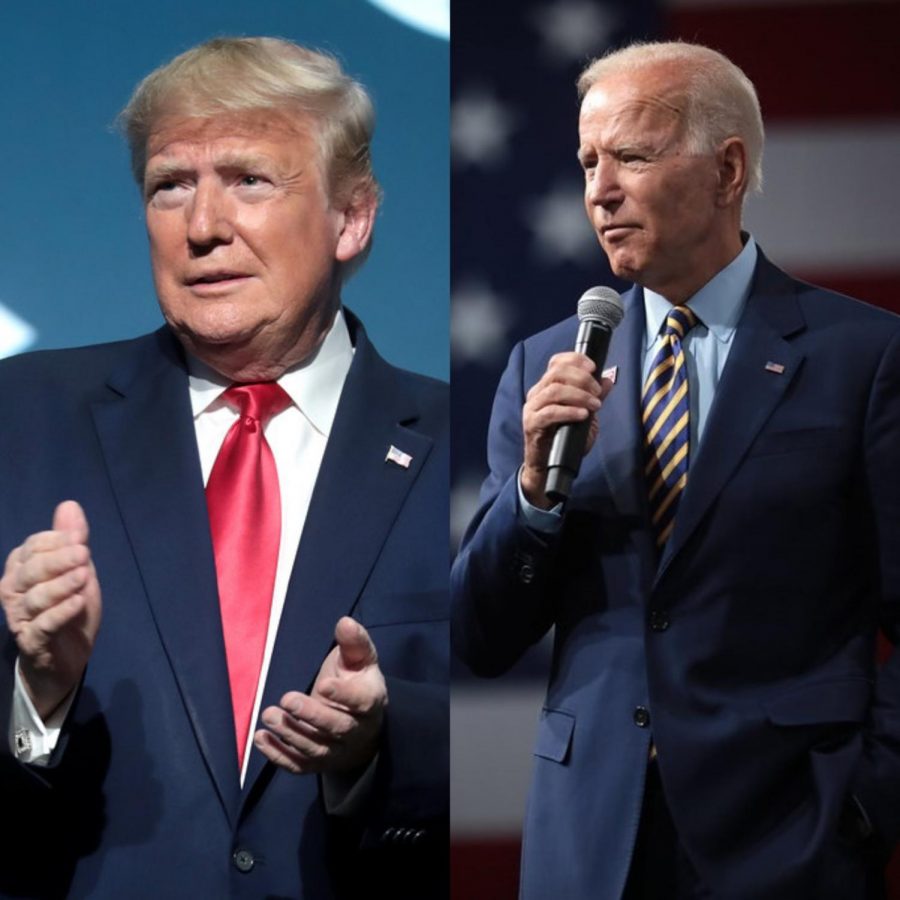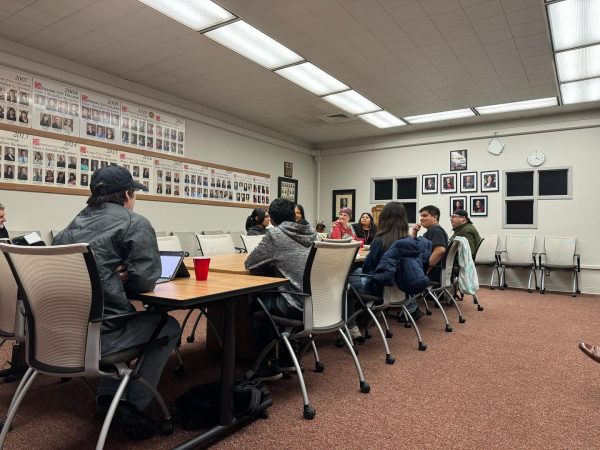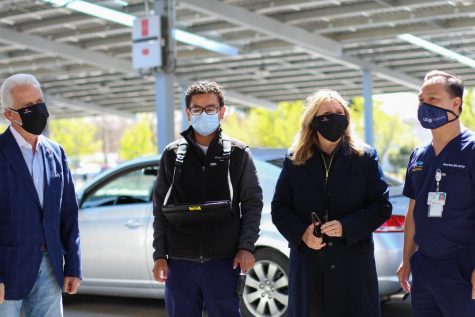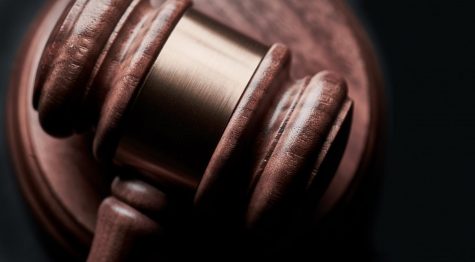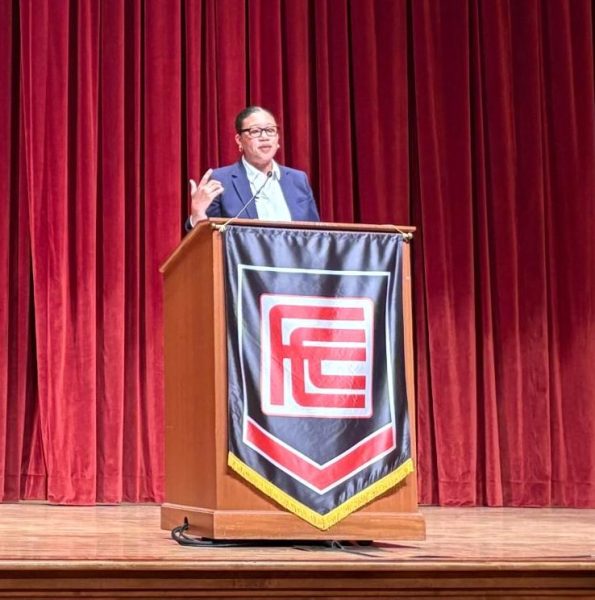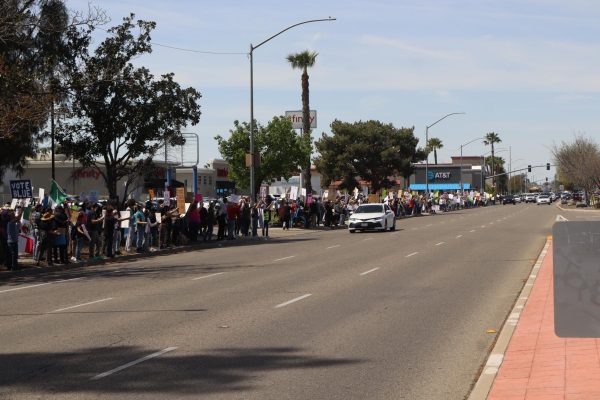FCC Forensics Breaks Down First Presidential Debate of 2020
Photo by: Image courtesy of Flickr
The American public was left disappointed after the first of the presidential debates between Republican incumbent President Donald Trump and Democrat challenger former-Vice President Joe Biden on Tuesday, Sept. 29. Many were left wondering how such an event could come about, or whether they should even be referred to as debates.
“We need to stop calling these debates, because they’re not,” said Fresno City College debate coach Tom Boroujeni.
“Yeah, vehemently, we agree that no debate occurred on Tuesday night,” said Eric Fletcher, Director of Forensics at FCC. The two have been helping organize forensics competitions and debates at FCC for years, and broke down what exactly happened between the candidates last week.
“Eric and I can walk you through every second of the debate and tell you what the best way to do something was,” said Boroujeni. “There were so many problems with this debate, and so many things that could’ve been done. The big problem is that this debate is very, very scant on arguments – real arguments – and it was much more about performance.”
Throughout the night, Trump made sure his performance didn’t go unnoticed, frequently interrupting and shouting over Biden when it was not his time to speak. While it was allowed on a national stage, Fletcher says it wouldn’t have happened the same in a debate at their level.
“If that occurred in one of our collegiate debates, the judge would’ve ended that about 10 minutes in, assigned the ballot for Biden and assigned zero speaker points to President Trump,” said Fletcher.
“Aside from physical violence – which never happens – that’s the second most sacred rule that we have is that you don’t hijack someone else’s time,” he said.
Boroujeni explained that time is coveted in debates, since all a debater has are their words and their time. It’s so valued that many debaters have their own timers on hand, so when a speaker’s time is up, you can hear at least five timers go off at once.
The New York Times was just one publication that tracked the lies told in the debate, and found that many came from Trump. Boroujeni and Fletcher say this is a calculated tactic of his.
“The average person is not gonna go fact check,” said Boroujeni. “So when he throws out something like ‘You’re son got three and half million dollars from the mayor of Moscow’, that becomes fact to some people. As long as a person in power said it, it becomes factual to some people.”
“Tom’s [Boroujeni] defining the ad ignorantiam fallacy, which is an appeal to ignorance,” said Fletcher. “Trump’s rhetorical device is to speak and claim facts, like the thing with Biden’s son, and we as the audience aren’t going to fact check that.”
Fletcher explained that it doesn’t mean the whole audience is ignorant. It’s that the audience doesn’t have the knowledge or resources to fact check, so it becomes true when combined with an appeal to presidential authority.
He also said that Trump’s strategy mirrored his political nature to manufacture chaos he can then control. Regardless of how he looked doing it, it was effective with Biden as an opponent.
“I think that because Trump hijacked the time consistently, [Biden’s] strategy just got lost,” said Fletcher. “There was no possible way for Biden to say ‘Hey, here’s all I am. I’m the level-headed one with my platforms.’ He didn’t really get a chance to.”
“Those things are evident of him not really having arguments but wanting to attack the opponent, and that’s a destructive technique in debate. And usually you only see that at novice levels,” said Boroujeni.
With Trump’s strategy working to a tee, Biden was reduced to incomplete points and moments when his recurring stutter started to show. This persisted until he found a camera and spoke directly to viewers at home on subjects requiring sentiment and passion.
“Whether it’s a competitive debate at the college level or on the spectrum of the presidential debates, whenever you can humanize any issue it becomes more compelling to the audience and the judge,” said Fletcher.
Fletcher thinks Biden’s reactions to Trump’s pressure and aggression weren’t explicit enough, saying that Biden could’ve left the podium and asked moderator Chris Wallace for help controlling the situation.
For Trump, the pressure was put on when he was asked to publicly denounce white supremacy to a national audience. He faltered, instead telling the far-right Proud Boys to “stand back and stand by.”
“If he distanced himself from white supremacy, he’s calculating votes, you understand?” said Fletcher. “I think it’s strategic. I don’t think it’s necessarily because he’s a card-carrying white supremacist… but this is strategic.”
While Boroujeni and Fletcher agree that Trump’s overall strategy was effective, it left the debate in shambles without proper moderation.
“What could Biden have done in that circumstance? I think the correct answer is that it was a failure of moderation,” said Fletcher.
“It was a failure by design.”
“We saw it much more this time when a moderator is interjecting more than ever because of the behavior, but it just demonstrates the failure of the structure of the debate itself,” said Fletcher.
The result left the U.S. audience speechless and watching in awe as candidates bickered and argued while a moderator struggled to correct it all, and Boroujeni was just one viewer left in astonishment.
“One of my friends was calling this debate a dumpster fire with an insult to all arsonists,” he said. “I thought that was a good way to put it.”
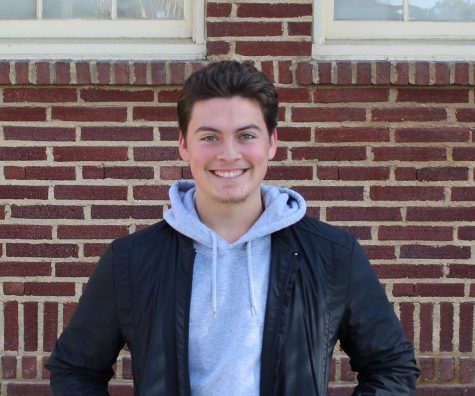
Patrick Henslee is in his third semester at the Rampage, and steps into the role of Managing Editor for the Spring 2020 semester. The 20-year-old is an...

